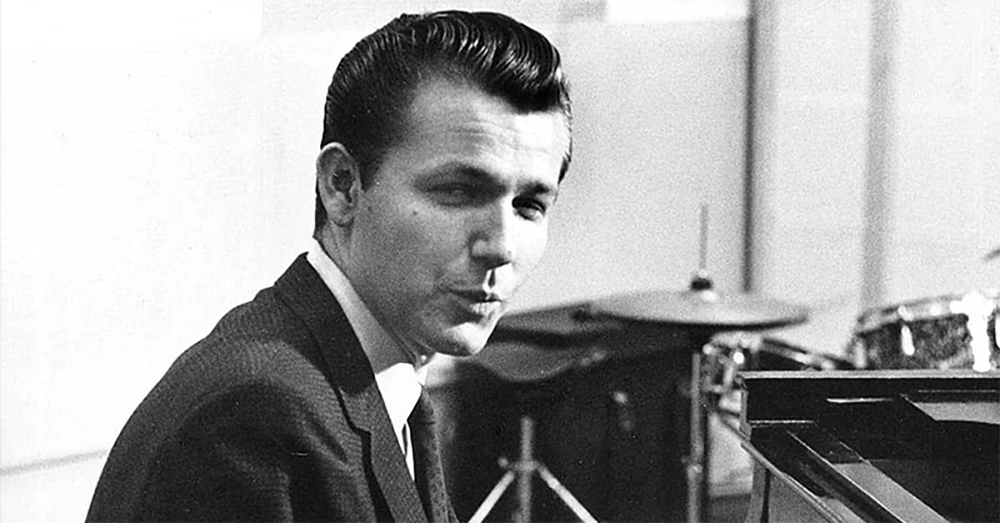Floyd Cramer, Architect of the Nashville Sound, Remembered

Floyd Cramer, the pianist whose signature slip-note technique helped craft the smooth, pop-inflected Nashville sound of the 1950s and ’60s, died on December 31, 1997, at his home in Nashville after a six-month battle with cancer. He was 64 years old.
At the time of his death, his music had become woven into the very fabric of Nashville’s musical identity. As The Independent put it, “His famous slurred notes … appear on literally hundreds of recordings from the Fifties and Sixties,” and “at his peak were heard on an estimated quarter of all the sides cut in Nashville.”
Chet Atkins, a fellow pioneer of the Nashville sound, captured Cramer’s essence beautifully:
“He was just a wonderfully talented person, and you didn’t have to struggle to get anything out of him,” Atkins said shortly after Cramer’s passing, underscoring the effortless brilliance behind his playing
Ask anyone to close their eyes and hear Floyd Cramer’s piano, and they’d instantly recognize it. The Encyclopedia of Arkansas observes that he was, quite simply, “the most important pianist in country music history.”
From Huttig to Nashville
Born on October 27, 1933, near Shreveport, Louisiana, Cramer spent his childhood in Huttig, Arkansas, teaching himself to play piano on a hand-me-down his parents bought for him at age five. His talents landed him on the Louisiana Hayride radio show—a springboard for many. There, he backed artists like Webb Pierce, Jim Reeves, Hank Williams Sr., and toured early with a young Elvis Presley.
Settling in Nashville in 1955, encouraged by Atkins, he became a session mainstay—playing on nearly one-fourth of all Nashville recordings during the peak of the countrypolitan era. Among the artists he accompanied: pa, Brenda Lee, Roy Orbison, Jim Reeves, the Everly Brothers, Perry Como, Eddy Arnold, Burl Ives, and Skeeter Davis.
The Sound That Defined an Era
Cramer’s slip-note or “whole-tone slur” style—where a note slides into another—became emblematic of the Nashville sound, lending a lonesome, vocal-like warmth to his playing.
At a session for Hank Locklin’s “Please Help Me, I’m Falling”, producer Chet Atkins reportedly asked him to replicate a unique piano approach. That experiment eventually blossomed into Cramer’s signature style.
Hits, Legacy, and Final Days
Cramer’s most enduring solo hit was “Last Date” (1960), a slippery, melodic instrumental that climbed to No. 2 on the Billboard Hot 100—just behind Elvis’s “Are You Lonesome Tonight?”, on which Cramer also played.
He followed with other hits like “On the Rebound”, which reached No. 4 in the U.S. and topped charts in the U.K., and “San Antonio Rose”, reinforcing his crossover appeal.
Cramer wasn’t just confined to studio work. He toured with guitar legend Chet Atkins and saxophonist Boots Randolph as part of the “Million Dollar Band,” recorded albums regularly, and became a regular presence on the Grand Ole Opry.
In 1997, the year he died, Cramer was diagnosed with cancer. Despite the illness, he continued to create until passing away on New Year’s Eve ﹘ a poignant close to a career built on melody and subtly expressive touch.
Remembering Floyd Cramer
Tribute writer Sonny Fulks reflected, “Cramer died before his time. A heavy smoker, he succumbed to lung cancer on New Year’s Eve, 1997, at the age of 64.” He added: “If you don’t remember the name, play … ‘Last Date’. You’ll know it when you hear it.”
His grandson, Jason Coleman, has carried forward his musical legacy with touring tribute concerts, keeping the slip-note tradition alive for new audiences.
Final Reflection
In the crowded history of popular music, Floyd Cramer stands out—not for flamboyance, but for precision, emotion, and an unmistakable voice on the piano. When he passed on December 31, 1997, it marked the end of an era. Yet every time “Last Date” drifts through the speakers—or you feel the gentle slide of a note—Cramer’s spirit lives on, subtle and enduring.